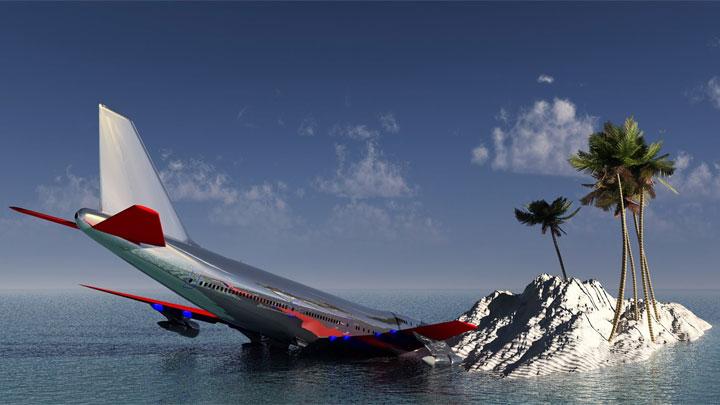The Indonesian government has officially revoked the Mining Business Permit (IUP) in the Raja Ampat area after it was proven that there had been violations of environmental provisions and the status of the geopark area.
This decision received full support from Konservasi Indonesia (KI), a national foundation that aims to support environmental conservation, which emphasized that the biological wealth and uniqueness of the Raja Ampat ecosystem cannot be replaced by any other region in the world. This step is considered a form of real commitment to preserving Indonesia's invaluable natural heritage, while strengthening Raja Ampat's position as a world center for marine conservation.
Konservasi Indonesia Senior Vice President and Executive Chair Meizani Irmadhiany said that the ecological, economic, and social values that have been built by the indigenous people in Raja Ampat for a long time cannot be replaced. This is because the indigenous people of Raja Ampat have long worked together with development partners to realize the sustainable use of natural resources in driving the economy.
"We welcome the government's decision to revoke the IUP in the Raja Ampat area. This is an important step in ensuring that areas with ecological value as high as Raja Ampat remain protected from potentially damaging activities," Meizani said in a written message to Tempo, Wednesday, June 11, 2025. According to him, the biodiversity and natural beauty of Raja Ampat are irreplaceable global assets. This decision shows that development does not always have to sacrifice the environment, and that nature protection can go hand in hand with the vision of sustainable development," said Meizani.
In addition, said Meizani, the world's recognition of the preservation of Raja Ampat's nature with its confirmation as a geopark site in May 2023 by UNESCO, should be a reference for the government in protecting this area.
According to him, every policy concerning Raja Ampat must be based on the principle of sustainability and long-term protection, not just momentary economic interests. "This is the momentum to show that Indonesia is capable of becoming a leader in world marine conservation," he said.
Senior Ocean Program Advisor for Conservation Indonesia Victor Nikijuluw added, in addition to being guided by Law Number 27 of 2007 concerning Management of Coastal Areas and Small Islands in conjunction with Law Number 1 of 2004 concerning Amendments to Law 27 of 2007 in conjunction with Law Number 6 of 2023 concerning Job Creation (hereinafter referred to as the "PWP3K Law") in the management of Raja Ampat, The government can also see the sustainability aspect of the livelihoods of local residents in this area.
In 2017, he said, Konservasi Indonesia together with Pattimura University (Unpatti) and Papua University (Unipa) conducted a study that showed that Raja Ampat could accommodate up to 21 thousand tourists per year without damaging the environment. "This finding confirms that sustainable tourism is a real choice to protect nature while boosting the economy," said Victor.
He gave a simple example, if one foreign tourist spends around US$ 1,000 during a one-week visit to Raja Ampat (for homestay rental fees, consumption, and transportation), then every 1,000 tourists will contribute around US$ 1 million to the local economy.
With a carrying capacity of 21,000 tourists per year, this means that the economic potential of sustainable tourism could reach US$ 21 million. This figure does not include the effects of transaction turnover during the tourist visit.
He estimated that the trickle-down and multiplier effects of the Raja Ampat tourism sector could reach US$ 31.5 million, so that the total value total tourism could reach US$ 52.5 million. "Mining activities can not only damage the environment, but can also cause communities and local governments to lose great potential that can support the local economy for decades to come," he said.
According to him, Konservasi Indonesia as a science-based environmental organization also estimates economic destruction if the Raja Ampat underwater ecosystem is damaged due to spillover of waste or waste and from the back and forth of mining transportation in the waters. Victor assessed that fisheries externality which is the impact of fisheries can be a major threat.
In one study, KI found that the distribution of dispersal larvae or fish larvae that lay eggs in waters near mining can be carried to other areas, which then affects the distribution of fish in the area. Victor gave an example, one of which is the type of skipjack tuna that inhabits the waters of eastern Indonesia. In the Raja Ampat area, such as Waigeo Island, it has long been known as a migration route for tuna and skipjack tuna species in Indonesia.
If damage to the marine ecosystem in the waters of Raja Ampat occurs, he said, then the number of tuna and skipjack tuna will also decrease in Indonesian waters, especially in the Banda Sea and Tomini Bay. In fact, tuna and skipjack tuna that cross "Raja Ampat migrate to the Indian Ocean, the Pacific Ocean. This means that the effects of pollution in the waters of Raja Ampat can have a wide impact not only on species under the sea, but also on the people in Gorontalo, Bitung, Ambon, to the waters of Arafura, Southeast Maluku," said Victor.
It doesn't stop there, according to him, another thing that is included in fisheries externality, namely related to the migration of fish called charismatic species such as types of sharks, manta rays, to turtles. Of the approximately 30 types of marine mammals that cross Indonesian waters, 15 of them pass through and inhabit the waters of Raja Ampat. Conservation Indonesia believes that these species are predicted to no longer make Raja Ampat their home or migration route if pollution occurs.
According to him, species consisting of large fish such as whale sharks, other types of sharks, to turtles, only come if there are small fish. He said that if an area of waters has been damaged environmentally, the plankton is gone, the water is polluted, and then the small fish are gone, then the big fish will no longer appear there.
"With such an impact, if you want to calculate it, the losses that will be felt can be hundreds of times greater with the loss of species that have been passing through or inhabiting the area," said Victor.
Editor's Choice: Walhi Slams Gov't over PT Gag Nikel's Ongoing Operations in Raja Ampat
Click here to get the latest news updates from Tempo on Google News































:strip_icc():format(jpeg)/kly-media-production/medias/3977835/original/066021800_1648524608-pexels-ahmed-aqtai-2233416_1_.jpg)
:strip_icc():format(jpeg)/kly-media-production/medias/3449231/original/035609000_1620241432-000_99C2L3.jpg)
:strip_icc():format(jpeg)/kly-media-production/medias/4779768/original/056174500_1711004488-hands-holding-knife-fork-alarm-clock-plate-blue-background.jpg)
:strip_icc():format(jpeg)/kly-media-production/medias/4678420/original/041411600_1701993066-pexels-thirdman-8489077.jpg)
:strip_icc():format(jpeg)/kly-media-production/medias/5134530/original/076641900_1739622826-20250215-Prabowo-AFP_7.jpg)
:strip_icc():format(jpeg)/kly-media-production/medias/3626995/original/056226000_1636431538-252444828_305857281141144_6357930935168472204_n.jpg)
:strip_icc():format(jpeg)/kly-media-production/medias/1619105/original/061499300_1496997418-ramadan-main.jpg)
:strip_icc():format(jpeg)/kly-media-production/medias/3508689/original/070798000_1626139545-20210713-Elon-Musk-SolarCity-5.jpg)
:strip_icc():format(jpeg)/kly-media-production/medias/4769102/original/014075000_1710171937-20240311-Taraweh_Pertama_di_Istiqlal-ANG_1.jpg)
:strip_icc():format(jpeg)/kly-media-production/medias/5106410/original/089112900_1737608852-Buya_Yahya.jpg)
:strip_icc():format(jpeg):watermark(kly-media-production/assets/images/watermarks/liputan6/watermark-color-landscape-new.png,1100,20,0)/kly-media-production/medias/5140628/original/019242500_1740225866-Persita_Tangerang_vs_Borneo_FC-35.jpg)
:strip_icc():format(jpeg)/kly-media-production/medias/3902213/original/084057500_1642045386-pexels-ralph-w-lambrecht-1446076__1_.jpg)
:strip_icc():format(jpeg)/kly-media-production/medias/4878826/original/064720000_1719661833-WhatsApp_Image_2024-06-28_at_23.09.07.jpeg)
:strip_icc():format(jpeg)/kly-media-production/medias/5141412/original/005545700_1740364919-Snapinsta.app_481203089_18446336839077229_3957692586101845976_n_1080.jpg)
:strip_icc():format(jpeg)/kly-media-production/medias/771429/original/006248600_1416892825-m2.jpg)
:strip_icc():format(jpeg)/kly-media-production/medias/2265569/original/050855900_1530514161-20180702-Harga-Pertamax-Naik-di-Semua-Daerah--TALLO-4.jpg)
:strip_icc():format(jpeg)/kly-media-production/medias/2240997/original/070157500_1528277766-arches-architecture-building-460680.jpg)
:strip_icc():format(jpeg)/kly-media-production/medias/4787912/original/016408900_1711630423-20240328-Penukaran_Uang-AFP_6.jpg)
:strip_icc():format(jpeg)/kly-media-production/medias/5139103/original/083951400_1740056485-Screenshot_20250220_192744_Instagram.jpg)
:strip_icc():format(jpeg)/kly-media-production/medias/4290349/original/045313100_1673596178-cek_fakta_kemensos_dana.jpg)